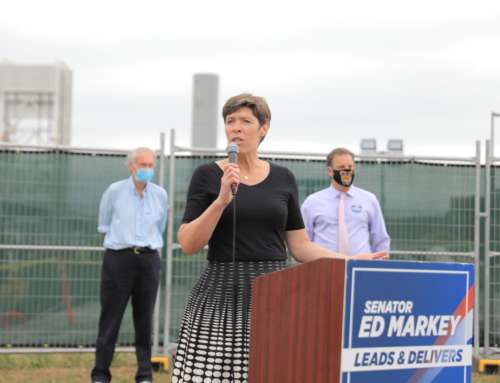(BOSTON) – Last Friday, the House of Representatives passed H.4912, an Act creating a roadmap to a clean and thriving commonwealth, originally filed by Representative Joan Meschino (D-Hull). Known as the “2050 Roadmap,” the bill updates the state’s greenhouse gas emissions reduction goal to net zero by 2050, sets robust interim targets, and establishes comprehensive and iterative planning mechanisms to help the Commonwealth achieve that goal.
“The science is clear: to avoid the devastation of climate change, greenhouse gas emissions must be reduced to net zero by 2050. This goal will only be met by a comprehensive planning process, which locks in key milestones now to get us there in 30 years. I filed the 2050 Roadmap Bill to help us achieve that objective,” said Representative Meschino. “Today, I am excited to announce that my colleagues and I in the Massachusetts House of Representatives came together and passed a roadmap for a clean and thriving Commonwealth with overwhelming support.”
H.4912 presents critical updates to the Global Warming Solutions Act, Massachusetts’ framework for climate mitigation planning, based on over a decade of experience with its implementation. The Global Warming Solutions Act, passed by the legislature in 2008, originally set Massachusetts on a course to reach an 80% reduction of 1990 greenhouse gas emission levels by 2050.
In addition to updating the 2050 emissions reduction limit to net zero, the bill requires at least a 50% decrease from 1990 levels by 2030, and a 75% reduction by 2040. It tasks the Executive Office of Energy and Environmental Affairs with conducting a backcast analysis of pathways to net zero, with environmental justice considerations. This analysis would serve as the basis for a 2050 emissions reduction roadmap plan, to outline policies, regulations, and legislative recommendations for all categories of emissions reductions in Massachusetts. The plan will be updated every five years to adapt to evolving science and technology.
Paired with measures to promote workforce development in the green economy and low-income access to solar, the bill puts environmental justice at the center, ensuring that the state prioritizes equity on the pathway to net zero.
